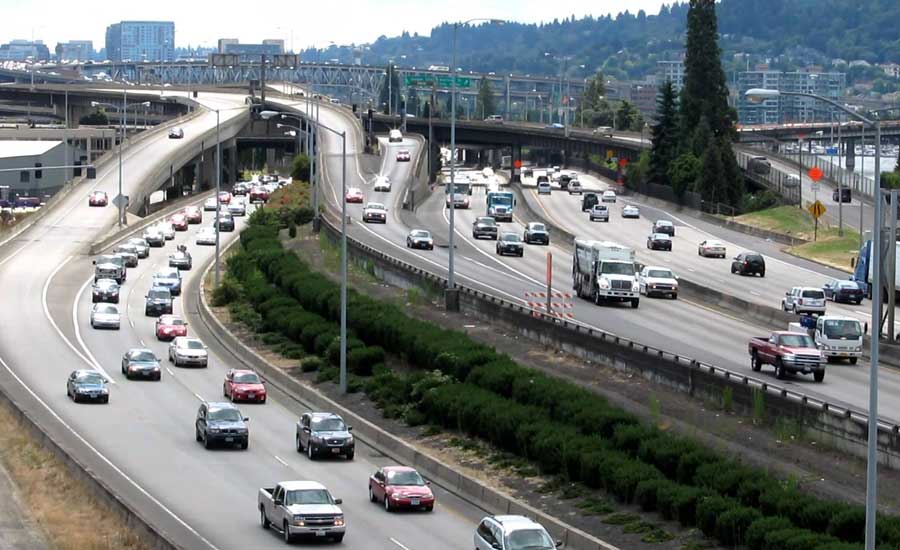All the new Oregon transportation bill needs now is a signature from Gov. Kate Brown, an expected event after the $5.3 billion, 10-year package passed both the Oregon House and Oregon Senate.
The far-reaching transportation bill includes increased transit spending, upgraded cycling infrastructure, a plan for congestion relief on Portland freeways and bridge repairs. Of course, it also comes with plenty in the way of new taxes to pay for the upgrades.
The major new taxes start in 2018 when the state’s gasoline tax increases an additional 4 cents. Conditional 2-cent hikes come possible in 2020, 2022 and 2024. Vehicle registration and title fees also jump as part of the package. Along with the additional gasoline tax, Oregon expects to create the state’s first non-bridge freeway tolling under the watch of the Oregon Transportation Commission.
“After seeking and receiving approval from the Federal Highway Administration, the commission shall implement value pricing to reduce traffic congestion,” the bill says. “Value pricing may include, but is not limited to, variable time-of-day pricing.”
The state expects tolling could help offset just over $1 billion in congestion and freight relief projects on Interstate 5 and Interstate 205, beginning at the Oregon-Washington border to the north and then moving south to where the two highways join in Wilsonville, south of Portland. The commission expects approval by Dec. 31, 2018, from the Federal Highway Administration.
The congestion-relief efforts include plans to widen the freeways, including a project already proposed for near the Rose Quarter for I-5 and a new lane in each direction on I-205 near Oregon City.
The bill includes a much-discussed provision to include a rebate program for Oregonians buying new electric or hybrid cars, which some lawmakers described as a benefit to the area’s wealthy drivers.
To help pay for updates to the cycling infrastructure, the bill includes a 3 percent tax on new bicycle sales, the first sales tax on new bicycles in the country. The bill includes funding pedestrian and cycling projects and public transit operations, including more than $100 million per year to expand transit into suburbs and rural areas that don’t already have the services.
Legislators have dubbed the package a well-balanced effort that touches on many facets of transportation in the state, whether freeway congestion in Portland, the shoring up of aging bridges, addressing rural needs, expanded transit and even cycling.
Follow Tim Newcomb on Twitter at @tdnewcomb.


Post a comment to this article
Report Abusive Comment